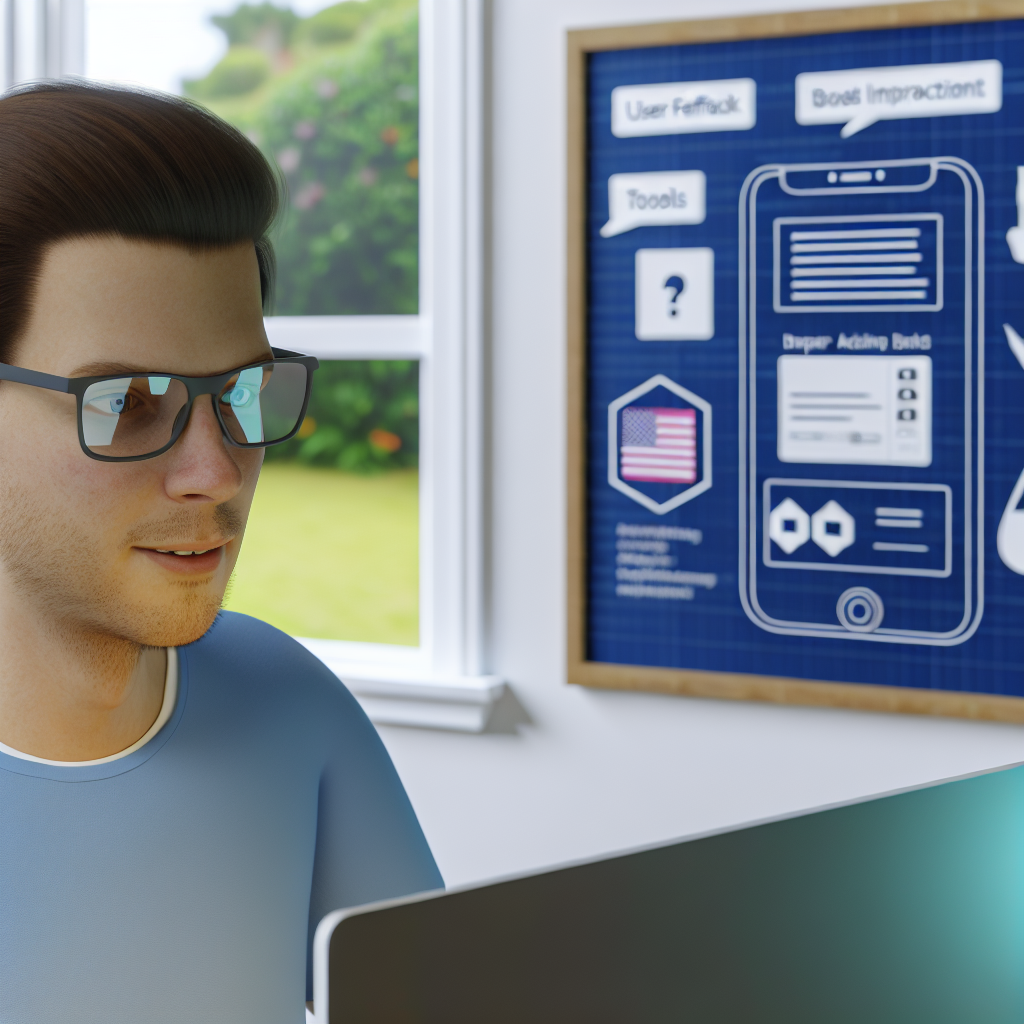Introduction
Overview of AI chatbots and their increasing relevance in healthcare
AI chatbots have emerged as crucial tools in the healthcare industry.
These intelligent agents provide real-time assistance to patients.
Their ability to deliver accurate health advice enhances the patient experience dramatically.
As healthcare demands grow, chatbots play an essential role in patient support.
Importance of health advice and patient support in today’s digital age
The importance of health advice and patient support has surged in today’s digital age.
Individuals increasingly seek immediate answers to their health-related queries.
The traditional healthcare model often struggles to meet this demand.
AI chatbots bridge this gap by offering 24/7 access to information.
Patients appreciate the convenience and immediacy that these technologies provide.
Advancements in AI technology enabling effective chatbot functionality
Advancements in AI technology have significantly enhanced chatbot functionality.
Natural language processing (NLP) allows chatbots to understand and respond to human language intelligently.
Machine learning algorithms continually improve their responses over time.
This capability enables chatbots to offer tailored health advice based on individual patient needs.
Additionally, integration with electronic health records enhances their ability to provide relevant information.
Moreover, chatbots can alleviate pressure on healthcare professionals.
By handling routine inquiries, they free up time for medical staff to focus on complex cases.
This efficiency results in improved healthcare delivery overall.
Patients feel more empowered to manage their health with readily available information.
In summary, AI chatbots transform how we approach health advice and patient support.
Their relevance in today’s healthcare landscape cannot be overstated.
As technology continues to advance, the potential for these tools expands.
They promise to revolutionize patient interactions and streamline healthcare processes.
The future of patient support is bright, and AI chatbots are at the forefront of this evolution.
Understanding AI Chatbots in Healthcare
AI chatbots have revolutionized the way healthcare interacts with patients.
They provide immediate responses to queries and support various health-related tasks.
Understanding their operation and significance is essential for appreciating their role in healthcare.
Definition of AI Chatbots and How They Operate
AI chatbots are software applications that simulate conversations with users.
They utilize natural language processing (NLP) and machine learning (ML) technologies.
This technology enables chatbots to understand and respond to human language effectively.
These chatbots primarily operate through text-based interactions.
Users type their queries, and the chatbots analyze the input.
After analyzing the input, a response is generated based on predetermined algorithms and training data.
The operation of AI chatbots often involves the following steps:
- Receiving user input through a chat interface.
- Processing the input using NLP to understand intent.
- Accessing relevant databases or knowledge bases.
- Generating an appropriate response based on context.
- Delivering the response back to the user.
Differentiating Between Rule-Based and AI-Driven Chatbots
Chatbots can be categorized into two main types: rule-based and AI-driven.
Understanding the differences between these two categories is crucial for choosing the right chatbot for healthcare needs.
We Design & Develop Websites, Android & iOS Apps
Looking to transform your digital presence? We specialize in creating stunning websites and powerful mobile apps for Android and iOS. Let us bring your vision to life with innovative, tailored solutions!
Get Started TodayRule-Based Chatbots
Rule-based chatbots follow a set of predefined rules.
They work by recognizing specific keywords within a user’s input.
If the input matches a predefined command, the chatbot responds accordingly.
Key characteristics of rule-based chatbots include:
- Their responses rely heavily on pre-written scripts.
- They can handle simple queries effectively.
- They may struggle with complex or ambiguous questions.
- They provide consistent responses based on programmed rules.
AI-Driven Chatbots
AI-driven chatbots utilize advanced technologies like machine learning.
They learn from interactions and improve over time based on user data.
This adaptability enables them to handle more complex questions and provide personalized responses.
Key characteristics of AI-driven chatbots include:
- Their ability to learn from every interaction.
- They provide richer, context-aware responses.
- They can understand variations in language and phrasing.
- They adapt to users’ preferences and behavior over time.
Examples of Popular AI Chatbots Used in the Healthcare Sector
Several AI chatbots have gained popularity in healthcare.
These chatbots assist patients by providing valuable information and support.
Here are notable examples:
- Buoy Health: This chatbot helps users assess their symptoms. It guides patients through a symptom-checking process and recommends next steps.
- Mayo Clinic Health Coach: This chatbot provides users with credible health information. It offers personalized health advice based on user interactions.
- HealthTap: This platform connects users with doctors via chatbot interactions. Users can ask questions and receive medical advice from qualified professionals.
- Babylon Health: This AI-powered chatbot offers users a symptom checker. It provides information and advice based on individual health concerns.
- Woebot: This mental health chatbot acts as a supportive companion. It uses cognitive-behavioral techniques to assist users struggling with mental health issues.
These chatbots demonstrate how AI can enhance healthcare delivery.
They provide timely and relevant health advice, improving patient engagement.
Benefits of AI Chatbots in Healthcare
The integration of AI chatbots in healthcare comes with numerous benefits.
Here are some highlights:
- 24/7 Availability: Patients can access support at any time, day or night.
- Cost Efficiency: Chatbots reduce operational costs for healthcare providers.
- Enhanced Patient Engagement: Chatbots facilitate ongoing communication between patients and healthcare providers.
- Fast Response Times: Patients receive immediate information without long wait times.
- Reduced Workload for Staff: Chatbots handle routine inquiries, freeing up staff for more complex cases.
Challenges and Considerations
Despite the many benefits, AI chatbots face several challenges.
Addressing these challenges is vital for successful implementation.
- Data Security: Patient data must remain secure and private. Developers must prioritize cybersecurity measures.
- Accuracy of Information: Chatbots must provide reliable medical advice to avoid misinformation.
- User Acceptance: Patients may be hesitant to trust chatbot technology for health-related queries.
- Integration with Existing Systems: Smooth integration with healthcare systems is crucial for efficiency.
- Limitations in Understanding: Some chatbots may struggle with complex medical conditions requiring human intervention.
The Future of AI Chatbots in Healthcare
The future of AI chatbots in healthcare appears promising.
As technology advances, chatbots will become more sophisticated.
They will likely offer even greater benefits to patients and healthcare providers alike.
Key trends to watch for include:
- Increased personalization based on patient history and preferences.
- Enhanced capabilities in understanding complex medical language.
- Better integration with wearable technology and health apps.
- Expanding roles in telemedicine and real-time health monitoring.
- Improved collaboration between AI chatbots and healthcare professionals.
In fact, AI chatbots play an essential role in modern healthcare.
By offering user-friendly interfaces and timely support, they transform patient interactions.
As technology evolves, so too will the capabilities of these intelligent systems.
Read: Cloud-Based Medical Imaging Software for Diagnostics
Benefits of AI Chatbots for Health Advice
AI chatbots for health advice have emerged as significant tools in the healthcare industry.
They offer numerous advantages for patients seeking timely health information.
This section explores the various benefits of AI chatbots, focusing on their accessibility, availability, accuracy, and ability to aid in patient triage.
Accessibility and Convenience for Patients
One of the primary benefits of AI chatbots is their unparalleled accessibility.
Patients can engage with these chatbots anytime and from anywhere.
This feature eliminates the need for patients to physically visit a clinic to seek advice
Here are some key points regarding accessibility:
- Patients can access health information from the comfort of their homes.
- AI chatbots can reach users in remote or underserved areas.
- They provide a non-judgmental platform for patients with sensitive health issues.
- Users can communicate with chatbots in multiple languages, enhancing convenience.
This increased accessibility significantly benefits individuals who might otherwise delay seeking health advice.
Patients with mobility issues or those living far from healthcare facilities can enjoy immediate access to information.
As a result, chatbots help alleviate potential health crises.
We Design & Develop Websites, Android & iOS Apps
Looking to transform your digital presence? We specialize in creating stunning websites and powerful mobile apps for Android and iOS. Let us bring your vision to life with innovative, tailored solutions!
Get Started Today24/7 Availability and Reduced Wait Times
AI chatbots are available around the clock, offering continuous support to patients.
Unlike human healthcare providers, chatbots do not require breaks or days off.
This constant availability leads to reduced wait times for users seeking advice.
Consider these advantages:
- Patients can receive immediate responses at any time of day or night.
- Chatbots help users avoid long phone wait times, especially during busy hours.
- They provide quick guidance in urgent situations, improving patient outcomes.
- Users can access chatbots from various devices, including smartphones and tablets.
This 24/7 accessibility empowers patients to address health concerns instantly.
It encourages them to seek assistance sooner.
As a result, this feature enhances overall health management and supports better decision-making.
Providing Accurate and Immediate Responses
AI chatbots are trained on vast amounts of healthcare data.
They deliver accurate and immediate responses to common health inquiries.
This capability fosters trust and reliability among users.
Here are some specific benefits:
- Chatbots can provide evidence-based information derived from reputable sources.
- They offer personalized responses based on user input and health history.
- Users receive consistent information, reducing confusion about health issues.
- Chatbots often update their databases, ensuring information remains current.
With accurate and timely responses, patients feel more informed about their health.
Chatbots can address queries related to symptoms, medications, and preventive care.
This immediate access to information empowers patients to make informed decisions regarding their health.
Helping in Triage Based on Symptoms
AI chatbots play a vital role in patient triage, assessing symptoms and directing individuals to appropriate care.
This feature helps streamline the healthcare process.
Here are the significant aspects of this benefit:
- Chatbots collect information about patient symptoms through a structured dialogue.
- They use algorithms to evaluate the severity of symptoms effectively.
- Based on the assessment, chatbots guide patients to the right services or professionals.
- This process reduces unnecessary visits to emergency rooms or urgent care.
By accurately triaging patients, chatbots help prioritize those in urgent need of medical attention.
This function ensures that healthcare resources are utilized efficiently.
Patients receive timely care, increasing the chances of better outcomes.
AI chatbots for health advice revolutionize patient support.
Their accessibility, 24/7 availability, and ability to provide accurate information enhance user experience.
Additionally, their role in triaging patients based on symptoms ensures that individuals receive appropriate care promptly.
As technology continues to evolve, the benefits of AI chatbots in healthcare will further expand, increasing their significance in patient support.
Incorporating AI chatbots into healthcare systems represents a promising development.
They empower patients, reduce wait times, and improve overall health management.
The future of healthcare increasingly relies on innovative solutions like chatbots, which make health advice more accessible and efficient.
Read: Virtual Reality for Post-Surgery Rehabilitation
Role of AI Chatbots in Patient Support
AI chatbots have transformed the landscape of patient support.
These intelligent systems actively engage patients, enhance their health literacy, and provide personalized care.
Here, we explore various roles that AI chatbots play in patient support, emphasizing their benefits and capabilities.
Enhancing Patient Engagement and Health Literacy
One significant role AI chatbots play is enhancing patient engagement.
They encourage patients to take an active role in managing their health.
Through interactive dialogues, chatbots effectively educate patients about their conditions and treatment options.
Patients can access reliable health information whenever they need it.
We Design & Develop Websites, Android & iOS Apps
Looking to transform your digital presence? We specialize in creating stunning websites and powerful mobile apps for Android and iOS. Let us bring your vision to life with innovative, tailored solutions!
Get Started TodayThis immediate availability fosters a better understanding of health-related issues.
As a result, patients feel more empowered to make informed decisions.
AI chatbots offer personalized responses based on each patient’s inquiries.
They analyze user input to ensure the guidance is relevant.
This personalization boosts health literacy, enabling patients to grasp complex medical terminology.
Moreover, they can direct patients to reputable resources and articles.
By doing this, chatbots not only inform but also build trust in the information provided.
Patients gain confidence in discussing their health issues with care providers.
Emulating Human-like Interactions to Provide Emotional Support
Emotional support is vital for patients coping with health challenges.
AI chatbots can simulate human-like interactions that provide comfort and reassurance.
These interactions reduce feelings of isolation, especially for individuals who may hesitate to share their feelings face-to-face.
Chatbots utilize natural language processing to understand and respond empathetically to patients.
They can recognize emotional cues and offer supportive responses. This capability transforms a basic inquiry into a more compassionate conversation.
Furthermore, chatbots can engage users in light conversations, alleviating stress.
Instead of just focusing on clinical queries, they can discuss hobbies and interests.
This human-like engagement creates a safe space for patients to express their anxieties.
Studies indicate that emotional support from chatbots can lower anxiety levels.
Patients who feel heard and supported are more likely to adhere to treatment plans.
By emulating human interactions, AI chatbots bridge the emotional gap in patient care.
Facilitating Follow-up Care and Reminders for Medication or Appointments
AI chatbots also play a crucial role in facilitating follow-up care.
They can send timely reminders for medication and appointments, helping to improve adherence.
This proactive approach significantly enhances patient outcomes.
Patients often struggle to remember when to take medications.
Chatbots alleviate this worry by issuing alerts based on individual schedules.
They can also adapt reminders according to patient preferences, whether through text or voice notifications.
In addition to medication reminders, chatbots can schedule and confirm appointments.
Patients can easily check available time slots and book appointments seamlessly.
This reduces administrative burdens for healthcare providers and improves patient satisfaction.
Moreover, chatbots can conduct follow-up assessments post-intervention.
They can ask patients about their recovery experiences and symptoms.
Gathering this information helps healthcare providers adjust treatments as necessary.
Collecting Patient Feedback and Improving Communication Channels
Collecting patient feedback is another vital function of AI chatbots.
They can prompt users to share their experiences and insights.
By actively seeking feedback, healthcare providers can identify areas for improvement.
Chatbots make feedback collection easy and accessible.
We Design & Develop Websites, Android & iOS Apps
Looking to transform your digital presence? We specialize in creating stunning websites and powerful mobile apps for Android and iOS. Let us bring your vision to life with innovative, tailored solutions!
Get Started TodayPatients can share their thoughts at their convenience, ensuring honest responses.
This data is invaluable for improving healthcare systems and services.
Furthermore, chatbots can analyze patient feedback to identify common concerns.
They can aggregate data trends, helping to pinpoint systemic issues.
This intelligence aids healthcare organizations in addressing patient needs more effectively.
Improving communication channels between patients and providers is essential.
AI chatbots can facilitate this by responding promptly to queries.
They enhance the overall communication experience, making healthcare more patient-centered.
The role of AI chatbots in patient support is transformative and multifaceted.
They enhance engagement, support emotional well-being, and streamline various aspects of patient care.
With ongoing advancements, these intelligent systems will continue to evolve, improving patient experiences in healthcare.
As healthcare evolves, AI chatbots will become indispensable tools.
They not only provide information but also foster an engaging and supportive healthcare environment.
Embracing these technologies will ultimately lead to better health outcomes and patient satisfaction.
Read: Wearable Health Device Integrations with Custom Software Solutions

Challenges and Limitations of AI Chatbots in Healthcare
The rise of AI chatbots has revolutionized healthcare by providing immediate support to patients.
However, challenges accompany their integration into the healthcare system.
Understanding these limitations is crucial for both healthcare providers and patients.
Accuracy and Reliability of Health-Related Information
One main concern revolves around the accuracy of health-related information provided by chatbots.
While they help deliver information promptly, errors can pose risks to patient safety.
Patients rely on chatbots for advice, expecting it to be reliable.
Some challenges regarding accuracy include:
- Data Quality: Chatbots depend on the quality of data they analyze. Poor data can lead to misleading information.
- Algorithm Limitations: Machine learning algorithms may struggle with nuanced medical terms, leading to incorrect responses.
- Updates and Relevance: Medical guidelines change frequently. Some chatbots lack updates to reflect the latest information.
- Contextual Understanding: Chatbots often fail to consider individual circumstances that affect health advice.
In clinical settings, these accuracy issues can lead to inappropriate recommendations.
Thus, users must treat chatbot advice with caution and verify findings through more reliable sources.
A collaborative approach involving healthcare professionals can enhance the reliability of information provided.
Ethical Considerations: Privacy and Data Security
As patient data is sensitive, ethical considerations surrounding privacy and data security are paramount.
AI chatbots inevitably handle private health information, raising concerns over data breaches and misuse.
Key ethical issues include:
- Data Collection: Many chatbots require personal health information to function properly. This raises concerns about consent and the purpose of data collection.
- Storage and Protection: Safeguarding collected data is essential. Cybersecurity measures must protect against unauthorized access.
- User Awareness: Patients may be unaware of how their data is being utilized and stored. Transparent communication is necessary.
- Regulatory Compliance: AI chatbots must adhere to healthcare regulations, such as HIPAA in the United States, to protect patient information.
Healthcare institutions must incorporate ethical guidelines and frameworks when deploying chatbots.
Ensuring that patient confidentiality remains intact is vital for maintaining trust and compliance in the healthcare sector.
Limitations in Understanding Complex Medical Conditions
AI chatbots often struggle with complex medical conditions.
Unlike human practitioners, chatbots lack in-depth understanding and critical thinking abilities.
Key limitations include:
- Simplified Responses: Chatbots may oversimplify complex medical inquiries, leading to unhelpful or potentially harmful advice.
- Inability to Diagnose: They do not possess the capability of clinical diagnoses, risking misinterpretation of symptoms.
- Lack of Emotional Intelligence: Chatbots cannot recognize emotional cues or provide empathetic support during distressing situations.
- Variability in Patient Interaction: Differences in communication styles among patients may confuse chatbots, limiting their effectiveness.
Complex medical scenarios often require the human touch that chatbots cannot provide.
Therefore, relying solely on chatbot assistance may lead to misunderstandings and miscommunication.
We Design & Develop Websites, Android & iOS Apps
Looking to transform your digital presence? We specialize in creating stunning websites and powerful mobile apps for Android and iOS. Let us bring your vision to life with innovative, tailored solutions!
Get Started TodayA hybrid model involving human consultations can help address these limitations and improve patient experience.
Potential for Misinformation and the Role of Human Oversight
The capability to provide incorrect or misleading information poses significant challenges for AI chatbots.
Misinformation can stem from various sources, including algorithm biases and flawed input data. Important considerations include:
- False Indexing: AI systems can inadvertently prioritize unreliable sources, spreading misinformation.
- Lack of Contextual Awareness: Chatbots often fail to apply context, leading to inappropriate responses.
- Dynamic Nature of Health Information: Continuous updates to medical information make it difficult for chatbots to stay current without human oversight.
- Dependence on User Queries: Patient input raises the risk of miscommunication and misinterpretation of symptoms.
Human oversight can mitigate the risk of misinformation.
Healthcare professionals can review chatbot-provided information to ensure reliability and safety.
Training for both chatbots and healthcare providers will contribute to better communication and accuracy.
AI chatbots for health advice and patient support offer incredible potential.
However, challenges and limitations continue to impact their effectiveness in healthcare.
Addressing issues concerning accuracy, ethical considerations, understanding of complex conditions, and misinformation is essential.
By integrating AI chatbots ethically and responsibly, the healthcare system can optimize support for patients while safeguarding their health information.
Moving forward, collaboration between technology and human expertise stands as the most effective approach to enhancing healthcare delivery.
Read: Blockchain-Based Health Records for Secure Data Management
Case Studies of Successful Implementation
AI chatbots have emerged as transformative tools in healthcare.
Several organizations have integrated AI chatbots into their systems.
These implementations have yielded significant benefits.
They have improved patient care, streamlined operations, and enhanced overall efficiency.
Here are notable case studies of organizations effectively using AI chatbots, along with the outcomes achieved and lessons learned.
Case Study 1: Babylon Health
Babylon Health is a pioneer in telehealth services.
They utilize AI chatbots to provide medical consultations.
Patients can access health information instantly through their app.
The chatbot asks symptom-related questions and offers advice based on the responses.
Outcomes and Improvements
- Increased patient engagement: The chatbot has seen millions of interactions, showcasing high user interest.
- Reduced wait times: Patients receive timely information, decreasing the need for lengthy appointments.
- Enhanced access to care: Users in remote or underserved areas easily access healthcare advice quickly.
- The system’s design must ensure user-friendly interactions to enhance adoption.
- Continuous updates based on user feedback improve chatbot responses and capabilities.
- Partnerships with healthcare professionals strengthen the chatbot’s credibility.
Case Study 2: Buoy Health
Buoy Health leverages AI chatbots for symptom checking and triaging.
Patients answer questions regarding their symptoms to receive guidance on their next steps.
The chatbot directs users toward the appropriate care options.
Outcomes and Improvements
- Improved patient satisfaction: Patients appreciate receiving immediate guidance without long waits.
- Better resource allocation: Physicians can focus on patients who need in-person care, maximizing their time.
- Accurate triaging: The AI-driven approach reduces misdiagnosis and unnecessary emergency room visits.
Lessons Learned
- Importance of privacy: Ensuring data security builds trust with users.
- Ongoing training of AI models enhances the chatbot’s learning and accuracy.
- Adaptability to changing healthcare guidelines is vital for optimal functionality.
Case Study 3: WHO’s Digital Health Initiative
The World Health Organization (WHO) implemented chatbots to share health information.
During health crises, such as the COVID-19 pandemic, these chatbots delivered real-time updates.
The WHO aimed to counter misinformation and reach a global audience.
Outcomes and Improvements
- Widespread information dissemination: The chatbot reached millions globally with health advice and news updates.
- Empowered communities: Users gained access to accurate information, aiding personal and public health decisions.
- Effective crisis management: During emergencies, accurate information released in real-time mitigated panic and confusion.
Lessons Learned
- Diverse language support enhances reach and inclusivity.
- Collaboration with local health authorities ensures culturally relevant content.
- Regular updates maintain the chatbot’s effectiveness in providing current information.
Case Study 4: PHELPS Health
PHELPS Health adopted a chatbot for both patient support and appointment scheduling.
Patients can ask questions about services and schedule visits without human assistance.
This implementation aimed to improve patient experience and reduce administrative workload.
Outcomes and Improvements
- Streamlined appointment scheduling: Patients can book, change, or cancel appointments easily.
- Decreased administrative burden: Staff have more time for critical tasks, improving care quality.
- 24/7 availability: Patients access information and services at their convenience, fostering satisfaction.
Lessons Learned
- Integration with existing electronic health records (EHR) systems can enhance efficiency.
- Staff training is essential for seamless integration of AI technology in daily operations.
- Continuous monitoring of user interactions helps identify areas for improvement.
Case Study 5: Amwell
Amwell offers a telehealth platform with AI chatbot capabilities.
The chatbot provides pre-visit workflows, including symptom checking.
It prepares patients for virtual consultations by gathering relevant health information.
Outcomes and Improvements
- Enhanced patient preparedness: Patients engage with the platform before consultations, improving interaction quality.
- Reduced administrative tasks: Streamlined workflows lower stress on healthcare providers.
- Higher conversion of visits: The chatbot increases the likelihood of satisfied patients continuing care.
Lessons Learned
- Feedback loops from users refine the chatbot’s approach and functionality.
- Integration with telehealth platforms ensures cohesive patient experiences.
- Future scalability hinges on investment in AI technology and personnel training.
AI chatbots demonstrate significant potential in healthcare.
These case studies illustrate successful implementations across various organizations.
We Design & Develop Websites, Android & iOS Apps
Looking to transform your digital presence? We specialize in creating stunning websites and powerful mobile apps for Android and iOS. Let us bring your vision to life with innovative, tailored solutions!
Get Started TodayThe outcomes reveal improvements in patient engagement, satisfaction, and operational efficiency.
By learning from these experiences, healthcare providers can continue to enhance patient support and overall care delivery.
Future Predictions for AI Chatbots in Healthcare
The landscape of healthcare is on the brink of transformation.
AI chatbots play a crucial role in this evolution.
In the coming years, advancements in technology will significantly enhance their capabilities.
This section explores predictions on technological advancements, integration with healthcare systems, and the impact on healthcare professionals.
Technological Advancements in AI Chatbots
Rapid technological changes will reshape AI chatbots in healthcare.
Here are several noteworthy predictions:
Enhanced Natural Language Processing (NLP)
AI chatbots will achieve advanced NLP, enabling them to comprehend complex medical terminologies.
Improved NLP will facilitate better patient interactions.
As a result, patients will receive accurate health advice more efficiently.
Machine Learning Enhancements
Future chatbots will leverage advanced machine learning algorithms.
These will allow chatbots to learn from interactions over time.
Consequently, they will personalize health advice based on individual patient histories and preferences.
Emotional Intelligence Integration
The future will see chatbots equipped with emotional intelligence capabilities.
This sensitivity will enable chatbots to respond empathetically to patients.
Such interactions may enhance the overall patient experience significantly.
Multilingual Support
Healthcare is global, and language barriers can hinder access.
Future chatbots will incorporate multilingual support.
This feature will allow them to cater to a more diverse patient population effectively.
Voice Recognition Technology
Voice-activated AI interfaces are gaining popularity. In the future, chatbots will utilize advanced voice recognition technologies.
As a result, patients can interact seamlessly through voice commands, enhancing accessibility.
Data-driven Insights
Emerging AI technologies will enable chatbots to analyze vast amounts of health data.
They will generate actionable insights for both patients and providers.
This capability can facilitate preventive care and early diagnosis.
Integration with Other Healthcare Services
The successful implementation of AI chatbots will depend on their integration with existing healthcare services.
Here’s how this integration will manifest:
Electronic Health Records (EHRs)
AI chatbots will connect seamlessly with EHR systems.
This connection will provide chatbots with real-time access to patient data.
Healthcare professionals will appreciate quick and comprehensive patient histories.
Telemedicine Platforms
Integration with telemedicine will expand chatbot functionalities.
Patients can receive virtual consultations with healthcare providers.
Chatbots will assist in scheduling appointments and managing follow-ups.
Appointment Scheduling Systems
AI chatbots will play a pivotal role in scheduling and managing appointments.
Patients will face fewer hurdles when coordinating healthcare services.
We Design & Develop Websites, Android & iOS Apps
Looking to transform your digital presence? We specialize in creating stunning websites and powerful mobile apps for Android and iOS. Let us bring your vision to life with innovative, tailored solutions!
Get Started TodayEnhanced efficiency in scheduling will save time for both patients and providers.
Clinical Decision Support Systems
By integrating with clinical decision support systems, chatbots will offer informed advice.
Healthcare providers will benefit from timely recommendations based on patient data.
This collaboration will improve patient outcomes significantly.
Health Monitoring Devices
As wearable technology gains traction, chatbots will integrate with health monitoring devices.
They will analyze data from wearables to provide personalized health insights.
Patients will experience a holistic approach to health management.
Pharmacy Management Systems
AI chatbots will streamline medication management by integrating with pharmacy systems.
Patients can receive reminders for medication refills and alerts for potential drug interactions.
This integration will enhance patient safety and adherence to treatment plans.
Impact on Healthcare Professionals
The rise of AI chatbots will inevitably affect healthcare professionals.
Here are the potential impacts:
Increased Efficiency
AI chatbots will automate routine tasks, freeing up practitioners’ time.
This efficiency will allow healthcare providers to focus on complex patient needs.
Consequently, patient care quality will likely improve.
Changing Roles for Healthcare Workers
As chatbots handle more administrative responsibilities, healthcare workers’ roles will evolve.
They will shift towards more analytical and patient-focused tasks.
Training may adapt to equip professionals with necessary skills.
Enhanced Collaborative Care
Chatbots will facilitate better communication among healthcare teams.
They will provide instant access to relevant patient information and insights.
This collaboration will enhance coordinated care and improve patient outcomes.
New Patient Interaction Dynamics
Healthcare professionals will need to adapt to new patient interaction styles.
Patients may increasingly consult chatbots before seeking provider advice.
Professionals will need to embrace this change to remain relevant.
Focus on Patient Education
With chatbots handling basic inquiries, healthcare providers can concentrate on patient education.
This shift will empower patients to make informed health decisions.
Educated patients often experience better health outcomes.
Adapting to Technological Changes
To thrive in this new environment, professionals must continuously learn about AI advancements.
Training programs will need to include education on AI systems and collaboration with technology.
Keeping current with technological changes will be vital for success.
The future of AI chatbots in healthcare looks promising.
Technological advancements will lead to enhanced capabilities and improved patient interactions.
Through seamless integration with healthcare systems, chatbots will revolutionize healthcare delivery.
Furthermore, the changing landscape will shift the roles and responsibilities of healthcare professionals.
They must adapt to this new paradigm to provide optimal patient care.
We Design & Develop Websites, Android & iOS Apps
Looking to transform your digital presence? We specialize in creating stunning websites and powerful mobile apps for Android and iOS. Let us bring your vision to life with innovative, tailored solutions!
Get Started TodayThe journey ahead is filled with opportunities for innovation and improved health outcomes.
Embracing these changes will be essential for all healthcare stakeholders.
Conclusion
Summary of key points discussed in the outline
AI chatbots revolutionize health advice and patient support, offering numerous benefits.
Firstly, they provide instant access to information.
Patients can receive timely advice without waiting for appointments.
This immediacy drastically reduces anxiety for users seeking answers.
Secondly, AI chatbots operate 24/7.
They serve patients beyond traditional office hours.
This round-the-clock availability enhances patient satisfaction and accessibility, particularly for those with busy schedules.
Moreover, chatbots deliver personalized experiences.
They can analyze user data and tailor interactions accordingly.
This personalization fosters trust and encourages patient engagement in their healthcare journeys.
Reiteration of the importance of AI chatbots for the future of health advice and patient support
AI chatbots also improve healthcare efficiency.
They handle routine inquiries, allowing healthcare professionals to focus on complex cases.
This optimization leads to better resource allocation within medical facilities.
Next, they support data collection and management.
Chatbots can gather patient information in real-time, streamlining administrative tasks.
This efficiency helps healthcare organizations maintain accurate records and reduce human error.
Lastly, they can educate patients effectively.
Chatbots deliver tailored health information and reminders for medication and appointments.
This education empowers patients to make informed decisions about their health.
Call to action for healthcare organizations to consider integrating AI chatbots for enhanced patient care
AI chatbots play a crucial role in the future of health advice and patient support.
Their ability to provide instant, personalized, and efficient interactions enhances the patient experience remarkably.
Healthcare organizations must recognize the importance of integrating AI chatbots into their systems.
Therefore, we urge all healthcare providers to consider adopting these innovative solutions.
By integrating AI chatbots, organizations can significantly enhance patient care and foster more effective healthcare delivery.
Before You Go…
Hey, thank you for reading this blog post to the end. I hope it was helpful. Let me tell you a little bit about Nicholas Idoko Technologies.
We help businesses and companies build an online presence by developing web, mobile, desktop, and blockchain applications.
We also help aspiring software developers and programmers learn the skills they need to have a successful career.
Take your first step to becoming a programming expert by joining our Learn To Code academy today!
Be sure to contact us if you need more information or have any questions! We are readily available.
Put Your Tech Company on the Map!
Get featured on Nicholas Idoko’s Blog for just $200. Showcase your business, boost credibility, and reach a growing audience eager for tech solutions.
Publish Now










